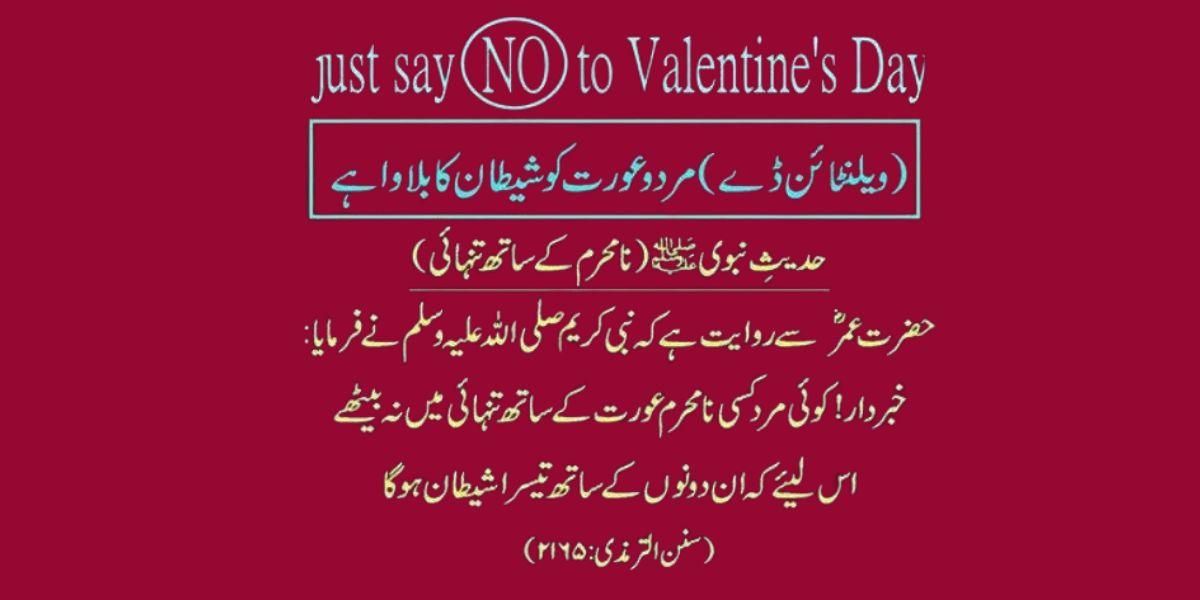Understanding Valentines Day in the Light of the Quran
Valentines Day celebrated worldwide on February 14th, is often associated with expressions of love and affection. However, for those who follow the teachings of the Quran, the celebration may raise questions about its compatibility with Islamic principles. Let’s explore what the Quran says about Valentine’s Day and how Muslims navigate this day within the framework of their faith.
Islamic Perspective on Love:
Islam, as a holistic way of life, acknowledges and encourages expressions of love and compassion. Love for family, friends, and the broader community is highly valued in Islamic teachings. The Quran emphasizes the importance of treating others with kindness and consideration, promoting a culture of respect and empathy.
Valentine’s Day and Islamic Principles:
While the Quran doesn’t explicitly mention Valentine’s Day, some Muslims may choose to approach the celebration through the lens of broader Islamic principles. The concern often revolves around the secular nature of the celebration, which may promote practices contrary to Islamic values.
ٱلۡخَبِيثَٰتُ لِلۡخَبِيثِينَ وَٱلۡخَبِيثُونَ لِلۡخَبِيثَٰتِۖ وَٱلطَّيِّبَٰتُ لِلطَّيِّبِينَ وَٱلطَّيِّبُونَ لِلطَّيِّبَٰتِۚ أُوْلَـٰٓئِكَ مُبَرَّءُونَ مِمَّا يَقُولُونَۖ لَهُم مَّغۡفِرَةٞ وَرِزۡقٞ كَرِيمٞ
Bad women are to the bad men, and bad men are to the bad women, and good women are to the good men, and good men are to the good women. These are righteous. Of what they say, for them is forgiveness and a generous provision.
Surah Noor: (24:26)
Islamic teachings prioritize modesty, purity, and the avoidance of practices that lead to immodesty or moral decay. Some Muslims may express reservations about the commercialization of Valentine’s Day, where the emphasis on romantic gestures can potentially undermine the modesty and sanctity of relationships.
Emphasis on Daily Expressions of Love:
The Quran encourages believers to express love, gratitude, and kindness daily, rather than confining these sentiments to a particular day. Acts of kindness, generosity, and compassion should be a consistent part of a Muslim’s life, fostering a culture of love and understanding within the community.
Cultural Considerations:
In some Muslim-majority countries, Valentine’s Day is not widely celebrated due to cultural and religious considerations. Authorities in these regions may discourage public celebrations, considering them inconsistent with Islamic values. However, individual perspectives on Valentine’s Day may vary among Muslims, depending on cultural backgrounds and personal beliefs.

Respecting Differences:
Muslims need to approach discussions about Valentine’s Day with respect for diverse perspectives within the community. Some may choose to celebrate the day in a modest and Islamically permissible manner, while others may opt to abstain altogether. The key is to navigate these choices in line with individual convictions and Islamic principles.
Conclusion:
While the Quran does not explicitly address Valentine’s Day, Muslims often approach the celebration by considering broader Islamic principles such as modesty, purity, and the consistent expression of love and compassion. Ultimately, the focus for Muslims should be on fostering meaningful, respectful, and modest relationships, in line with the teachings of the Quran, regardless of whether or not they choose to participate in Valentine’s Day celebrations.











